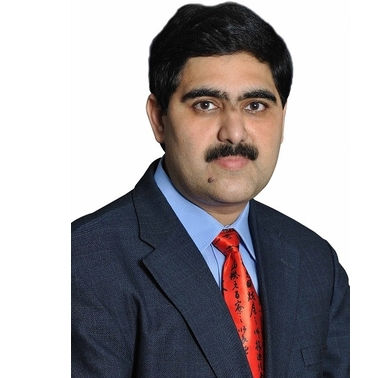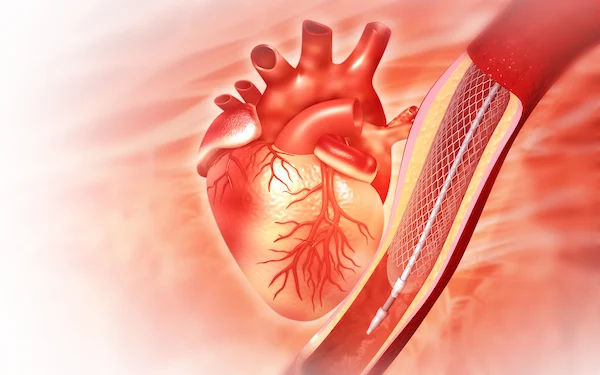Understanding Insomnia Symptoms, Treatment and Causes
Learn about insomnia, a common sleep disorder affecting daily functioning and overall health. Understand its symptoms, causes, and explore effective treatment options to improve sleep quality and well-being.

Written by Dr. J T Hema Pratima
Reviewed by Dr. Rohinipriyanka Pondugula MBBS
Last updated on 13th Jan, 2026

Introduction
Do you often find yourself staring at the ceiling at night, unable to fall asleep? Or do you wake up frequently and struggle to go back to sleep? If this sounds familiar, you might be experiencing insomnia, a common sleep disorder that affects millions of people.
The good news is that insomnia is manageable, and with the right approach, you can improve your sleep quality. In this article, we’ll explore what insomnia is, common symptoms, possible causes, effective treatments and lifestyle changes and when to seek medical help.
What Is Insomnia?
Insomnia is a sleep disorder where a person has trouble falling asleep, staying asleep, or waking up too early and not being able to go back to sleep. This can lead to daytime fatigue, irritability, and difficulty concentrating.
There are two main types of insomnia:
1. Acute (Short-term) Insomnia – Lasts for a few days or weeks, often triggered by stress, travel, or life changes.
2. Chronic (Long-term) Insomnia – Occurs at least three nights a week for three months or longer, often due to underlying health conditions or lifestyle factors.
Consult a Sleep Medicine Specialist for the best advice
Common Symptoms of Insomnia
If you have insomnia, you may experience:
Difficulty falling asleep at night
Waking up frequently during the night
Waking up too early and not being able to sleep again
Feeling tired or groggy during the day
Trouble focusing, remembering things, or making decisions
Mood swings, irritability, or anxiety
Increased mistakes or accidents due to fatigue
If these symptoms persist and affect your daily life, it’s important to address them.
What Causes Insomnia?
Insomnia can be caused by various factors, including:
1. Stress and Anxiety
Worries about work, relationships, or finances can keep your mind active at night, making it hard to relax.
2. Poor Sleep Habits
Irregular sleep schedules, excessive screen time before bed, or an uncomfortable sleep environment can disrupt sleep.
3. Medical Conditions
Certain health issues like asthma, acid reflux, chronic pain, or hormonal imbalances (e.g., thyroid problems) can interfere with sleep.
4. Mental Health Disorders
Depression, anxiety, and PTSD are closely linked to insomnia.
5. Medications
Some medications for blood pressure, allergies, or depression can cause sleep disturbances.
6. Lifestyle Factors
Caffeine & Nicotine – Consuming coffee, tea, or smoking close to bedtime can keep you awake.
Alcohol – While it may help you fall asleep initially, it disrupts deep sleep later in the night.
Late-night Eating – Heavy meals before bed can cause discomfort and indigestion
How to Manage and Treat Insomnia
The good news is that insomnia can often be improved with lifestyle changes and, if needed, medical treatment.
1. Improve Sleep Hygiene
Stick to a Sleep Schedule – Go to bed and wake up at the same time every day, even on weekends.
Create a Relaxing Bedtime Routine – Read a book, take a warm bath, or practice deep breathing before sleep.
Limit Screen Time – Avoid phones, TVs, and laptops at least an hour before bed. The blue light can interfere with melatonin (the sleep hormone).
Make Your Bedroom Sleep-Friendly – Keep it dark, quiet, and cool. Consider blackout curtains or a white noise machine if needed.
2. Manage Stress and Anxiety
Practice relaxation techniques like meditation, yoga, or progressive muscle relaxation.
Write down worries in a journal before bed to clear your mind.
3. Watch Your Diet and Exercise
Avoid Caffeine & Alcohol – Especially in the afternoon and evening.
Eat Light at Night – Heavy meals can cause discomfort. Opt for a light snack if hungry.
Exercise Regularly – Physical activity helps improve sleep, but avoid intense workouts close to bedtime.
4. Cognitive Behavioral Therapy for Insomnia (CBT-I)
CBT-I is a structured program that helps change negative thoughts and behaviors around sleep. It’s highly effective for chronic insomnia.
5. Medications (If Needed)
In some cases, doctors may prescribe short-term sleep aids. However, these should only be used under medical supervision to avoid dependency.
When to See a Doctor
If insomnia is affecting your daily life despite trying self-care methods, it’s time to consult a doctor. You should seek help if:
You’ve had trouble sleeping for more than a month.
Daytime fatigue affects your work, mood, or safety (e.g., drowsy driving).
You experience symptoms like snoring, gasping for air, or restless legs at night (these could indicate other sleep disorders).
Final Thoughts
Insomnia can be frustrating, but it’s treatable. By making small lifestyle adjustments and seeking help when needed, you can regain restful sleep and improve your overall well-being. Remember, good sleep is not a luxury; it’s a necessity for a healthy, happy life. If sleep troubles persist, don’t hesitate to reach out to a healthcare professional.
Consult a Sleep Medicine Specialist for the best advice
Consult a Sleep Medicine Specialist for the best advice

Dr. Suresh G
General Physician/ Internal Medicine Specialist
25 Years • MBBS, MD
Bangalore
Apollo Clinic Bellandur, Bangalore
(225+ Patients)

Dr. Priya Sharma
Pulmonology/critical Care Specialist
9 Years • DM (PULMONARY MEDICINE), DNB, EDARM, MNAMS
Delhi
Apollo Hospitals Indraprastha, Delhi

Dr. Shiba Kalyan Biswal
Pulmonology Respiratory Medicine Specialist
18 Years • MBBS,MD,DM(AIIMS Delhi)
Gurugram
APOLLO SUGAR CLINICS GURUGRAM, Gurugram
Dr Srinivas Rajagopala
Pulmonology Respiratory Medicine Specialist
20 Years • MBBS, MD (Int Med), DM (Pul & Crit Care), Fellowship in Lung Transplantation (Toronto)
Chennai
Apollo Cancer Speciality Hospital, Teynampet, Chennai

Dr. Nagarajan Ramakrishnan
Sleep Medicine Specialist
25 Years • MD, MMM, FACP, FCCP, FCCM
Chennai
Apollo Hospitals Greams Road, Chennai
(25+ Patients)




